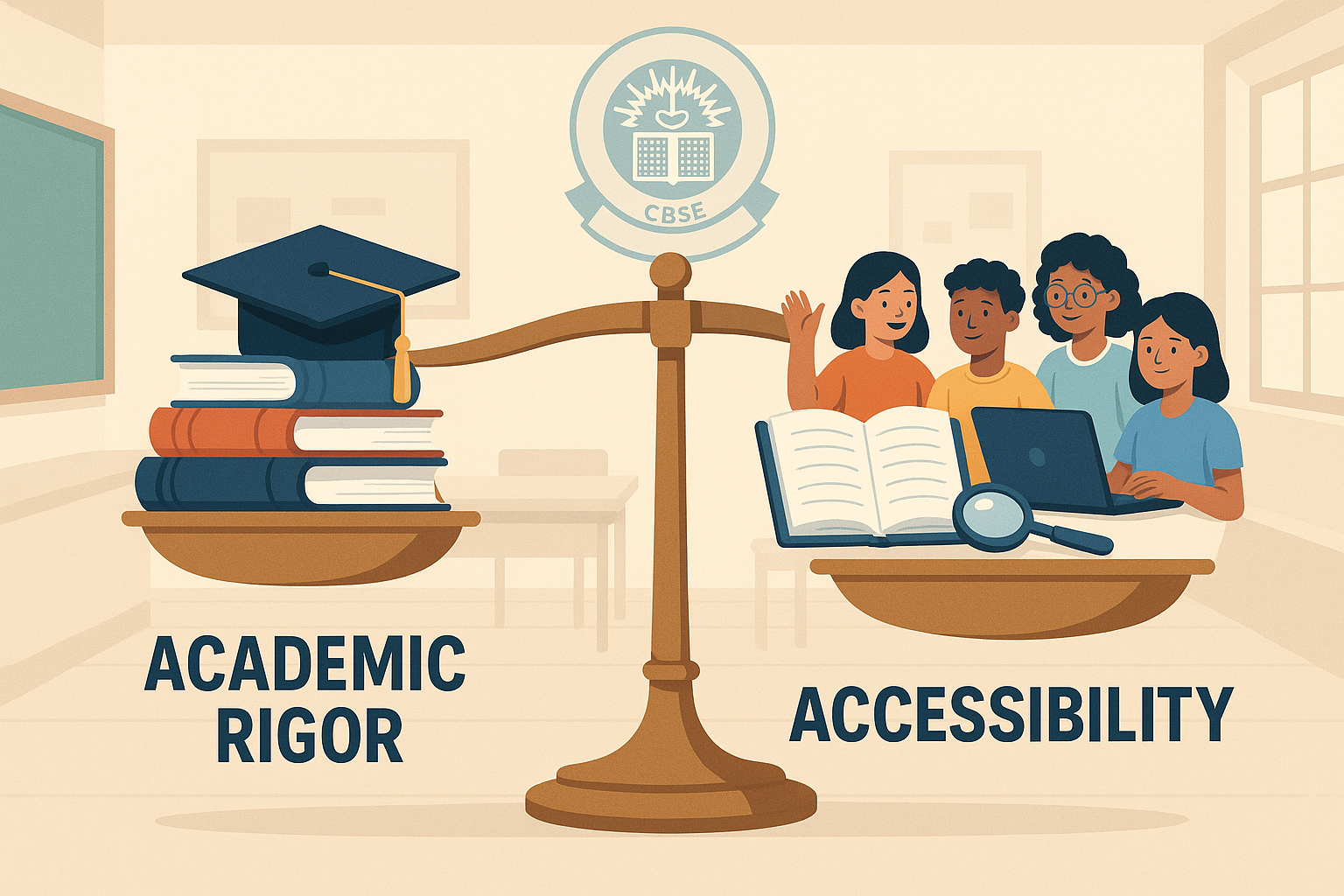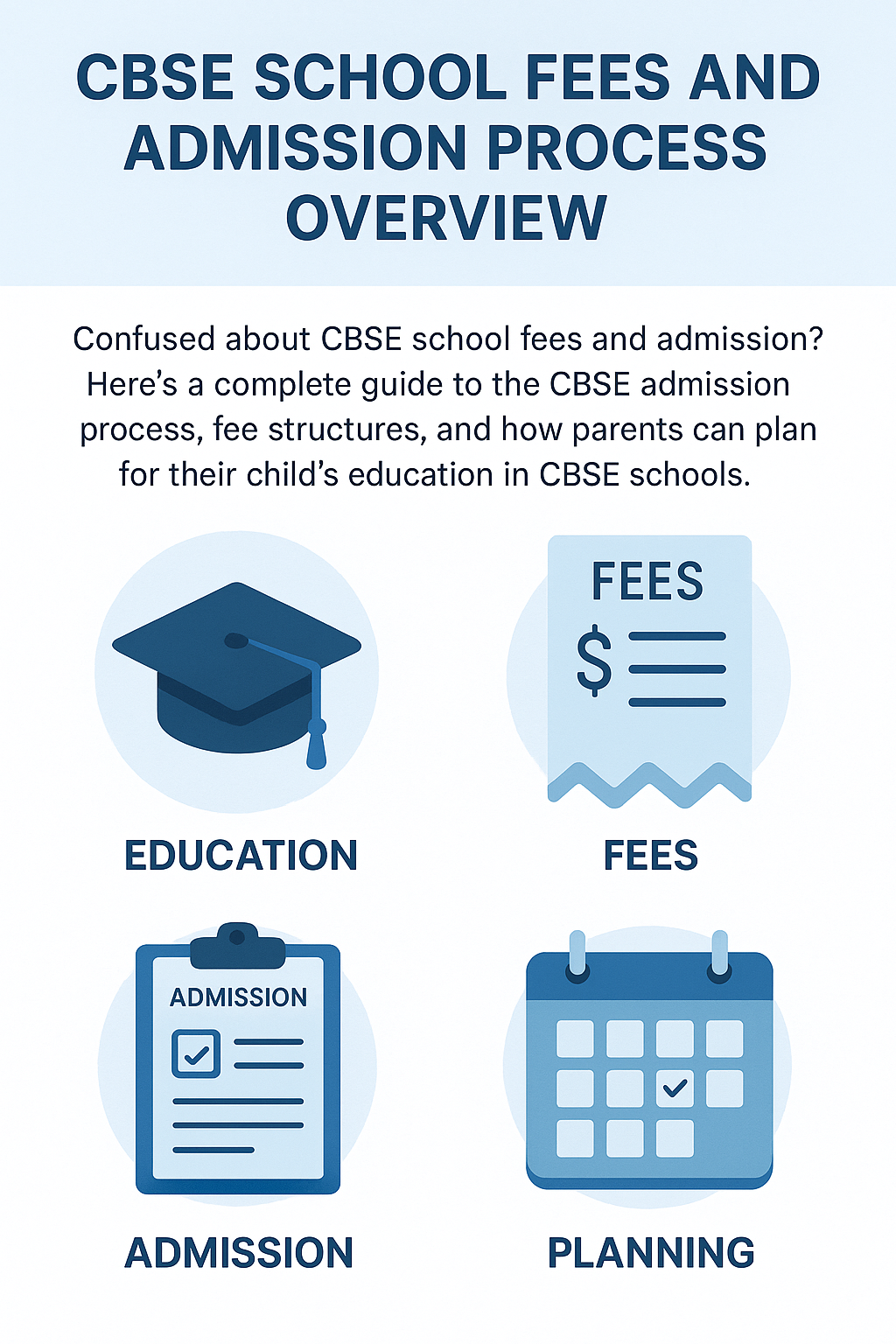Professional Courses
Industry-relevant training in Business, Technology, and Design
Categories
Interactive Games
Fun games to boost memory, math, typing, and English skills
Typing
Memory
Math
English Adventures
Knowledge
How to Calculate Your CBSE 12th Percentage from Your Marksheet

How to Calculate Your CBSE 12th Percentage from Your Marksheet
Your CBSE Class 12 marksheet is more than just a piece of paper. It’s a detailed record of your performance across all subjects, and it often plays a big role in deciding your next academic steps. Whether you’re applying for Class 11 admissions, preparing for competitive exams, or simply curious about your academic standing, knowing how to calculate your CBSE 12th percentage correctly is an important skill. Many students make simple mistakes in this process, especially when interpreting grades and marks. This guide will walk you through the process in detail, help you understand CBSE’s marking system, and give you useful tips to avoid common errors.
You will also learn how online tools like AllRounder.ai can help you track, predict, and improve your academic performance.
Why Calculating Your CBSE 12th Percentage Matters
Your CBSE 12th percentage is often required when filling out forms for school admissions, scholarships, and even certain entrance exams. Many private schools and junior colleges set eligibility cut-offs based on percentages rather than CGPA or grades. Having an accurate percentage ensures you present your scores correctly and avoid misunderstandings.
It also helps you compare your performance with peers in a more familiar format. While the CBSE marking system focuses on marks and grades, percentages are universally understood and often used in academic and professional settings.
Understanding the CBSE Marking System
Before you start calculating, it’s essential to understand how CBSE awards marks and grades in Class 12. The marksheet contains scores for each subject, usually divided into theory and internal assessment or practical. The total marks for most subjects are 100, with theory making up around 80 marks and internal or practical work accounting for 20 marks.
Each subject’s total is mentioned in the marksheet. CBSE also provides a grading scale from A1 to E, where A1 is the highest grade and E denotes failing to meet the minimum passing criteria. Understanding both the raw marks and the grades is important because your percentage will be calculated from the marks, not the grades.
Step-by-Step Process to Calculate Your CBSE 12th Percentage
The process is quite simple once you understand it. Your percentage is the sum of the marks you obtained in all your main subjects, divided by the total possible marks, multiplied by 100.
For example, if you have five main subjects, each worth 100 marks, the total possible marks would be 500. If you scored a total of 430 marks across these subjects, your percentage would be (430 ÷ 500) × 100 = 86%.
When calculating, make sure you include only the subjects counted by CBSE for percentage purposes. Typically, the best five subjects are considered, excluding any additional subject unless it replaces a lower score in one of the main subjects.
Which Subjects Are Counted in CBSE Percentage Calculation?
CBSE usually calculates the overall percentage based on the main five subjects. These are often:
- Two language subjects (for example, English and Hindi)
- Mathematics
- Science
- Social Science
If you have opted for an additional subject like Information Technology or a third language, it may be considered in place of one of the main subjects if it has a higher score. However, the rules may vary depending on your school or the purpose of the percentage calculation. Always check the specific requirement before deciding which marks to include.
For detailed guidance on subject selection and marks weightage, platforms like AllRounder.ai offer personalised academic advice.
How to Handle Grades When Calculating Percentage
Sometimes, marks are not explicitly printed for certain subjects, especially in skill-based or co-scholastic areas, and you may only see grades. In this case, you need to convert grades into marks using CBSE’s official grade-to-mark range.
For example:
- A1 corresponds to marks between 91 and 100
- A2 corresponds to marks between 81 and 90
- B1 corresponds to marks between 71 and 80
- …and so on.
When calculating percentages for official purposes, you should use the actual marks printed for your main academic subjects. If only grades are provided, take the average of the mark range for that grade to get an estimated figure.
Common Mistakes Students Make While Calculating
A lot of students lose accuracy in their percentage calculation because of avoidable errors. Some common mistakes include:
- Including all subjects instead of the best five, which can lower the percentage.
- Forgetting to add both theory and practical marks for each subject.
- Using grade points instead of actual marks without proper conversion.
- Rounding off too early, leading to incorrect final percentages.
The safest way to avoid these errors is to write down each step and cross-check your numbers. Using a calculator or the percentage tools available on AllRounder.ai can also help prevent mistakes.
Using AllRounder.ai to Calculate and Predict Your Percentage
Manually calculating your CBSE 12th percentage is straightforward, but if you want accuracy and speed, online tools can help. AllRounder.ai offers a percentage calculator where you can enter your marks subject-wise and get your exact percentage instantly.
It also lets you simulate “what if” scenarios, where you can predict your final percentage based on your current preparation level. This is useful for setting goals and tracking improvement over time.
Why Internal Assessment Marks Matter
Many students overlook internal assessment marks when calculating their percentage, but these can significantly affect your final score. Internal marks for assignments, projects, practical, and attendance are added to your theory marks to get the total for each subject.
For example, scoring 70 out of 80 in theory and 20 out of 20 in internal assessment gives you a perfect 100 in that subject. Missing out on these 20 marks in your calculation can make your percentage seem lower than it actually is.
How CBSE Calculates Overall CGPA and Its Relation to Percentage
While CBSE has moved towards direct marks reporting in Class 12 results, some students still come across CGPA references. The CGPA (Cumulative Grade Point Average) is calculated by taking the average of your grade points in all main subjects.
To convert CGPA into a percentage, CBSE previously recommended multiplying the CGPA by 9.5. For example, a CGPA of 8.4 would correspond to 79.8%. However, remember that for most official purposes now, your marks-based percentage is preferred over CGPA conversion.
Sample Calculation for Better Understanding
Let’s say you have the following marks:
English: 92
Hindi: 85
Mathematics: 88
Science: 90
Social Science: 80
Total marks = 92 + 85 + 88 + 90 + 80 = 435
Percentage = (435 ÷ 500) × 100 = 87%
If you also have an additional subject with 95 marks, you can replace your lowest score (Social Science, 80) with this subject if required, which would raise your percentage.
Why Accuracy is Important for College Admissions
Some colleges verify marks directly from CBSE’s official database, but many ask you to enter your percentage manually during application. If you miscalculate and enter the wrong figure, it could lead to disqualification or rejection of your form. Always double-check your percentage before submitting it anywhere.
Tips to Improve Your Percentage Before Results
If you’re reading this before your Class 12 results are out, you still have a chance to improve your score. Focus on high-weightage topics, practice previous years’ question papers, and take mock tests on AllRounder.ai to build accuracy and speed. Small improvements in one or two subjects can significantly boost your overall percentage.
What to Do if You Disagree with Your Marks
If you feel your marks do not reflect your performance, CBSE allows you to apply for verification of marks, re-evaluation, or even appear for improvement exams. In such cases, always recalculate your percentage after any updated marks are issued.
Final Thoughts
Calculating your CBSE 12th percentage is not just about simple math; it’s about understanding the marking system, knowing which subjects to count, and avoiding common mistakes. An accurate percentage can make all the difference in your academic applications, and using tools like AllRounder.ai can make the process quicker and more reliable.
Stay organised, keep track of your marks, and always verify your numbers before using them in official documents. Your Class 12 marksheet is a stepping stone to your next academic chapter, so make sure you represent your achievements accurately.

Discover the advantages of the CBSE board for long-term academic and career planning, including curriculum strength,...

Explore how the CBSE board balances academic rigor and accessibility through its curriculum, syllabus, exams, and...

A complete parent’s guide to understanding the CBSE board, its curriculum, syllabus, advantages, exam structure, and...

Confused about CBSE school fees and admission? Here’s a complete guide to the CBSE admission process, fee...

Is NIOS and CBSE syllabus same? Discover the key differences in curriculum, teaching, and exam approach. Learn how...

CBSE Holiday List 2025: Explore the official school calendar, national & regional holidays, summer & winter...

Learn how to calculate your CBSE 12th percentage from your marksheet using the official formula with a simple...

Confused about RT, COMP, and ER on your CBSE marksheet? Learn their meanings, reasons, and what steps you should...
Learn everything about the CTET exam for aspiring CBSE school teachers, including eligibility, syllabus, preparation...

Looking to apply for the CBSE Single Girl Child Scholarship Scheme? Learn eligibility, documents, application steps,...

Discover everything parents and students need to know about the CBSE Class 9 registration process, including...

Learn everything about the CBSE private candidate application process and rules. Understand eligibility,...

Confused about the CBSE answer key? This guide explains how to access it, interpret it, and use it to analyse your...

Confused about how CBSE re-evaluation or re-checking works? This guide explains eligibility, steps, fees, deadlines,...

Discover how to use the CBSE Academics website to access important resources like curriculum, sample papers, and...

Learn how to easily access your CBSE marksheets and certificates using DigiLocker. This step-by-step guide helps...

Confused about CBSE passing marks for theory and practical exams? This guide explains the minimum marks needed to...

Learn how the CBSE Open Book Exam will be implemented for Class 9 and Class 11 students. Understand the benefits,...

Confused about the CBSE compartment and improvement exam process? This complete guide explains eligibility, how to...

Learn how to obtain your CBSE Migration Certificate after Class 10 or Class 12. This detailed guide walks you...

Confused about your CBSE Admit Card? This easy step-by-step guide explains how to download it, what details to...

Discover what CBSE competency-based questions are and learn how to answer them expertly to you ace your exams.

Boost your Class 10 CBSE board prep with sample papers. Learn how to revise smartly, manage time, and score higher...

Learn how to score high in the CBSE curriculum with a subject-by-subject guide, expert tips, and AllRounder.ai tools...

Compare CBSE vs ICSE to choose the best board for your child. Understand syllabus, teaching style, exam prep, fees, and more.

Understand the latest CBSE marking scheme and question paper pattern. Learn about competency-based questions,...

Want to score above 95% in your CBSE Class 10 boards? Our strategy guide breaks down topper study plans to revision...

Compare CBSE vs ICSE to find the best board for NEET and JEE preparation. Understand syllabus match, exam formats,...

Treat your CBSE Class 12 exams using an athlete's approach to help you train, strategize, and perform your best on exam day.

Get ready for your CBSE Class 10 board exams with our survival kit. Find the official syllabus, a smart study...

Learn how to verify CBSE marksheets, certificates, and results online. Step-by-step guide for students and parents...

Master CBSE with top-rated tools, study planners, and expert online help. Perfect guide for Class 9–12 students...

Learn about CBSE – its full form, history, objectives, and structure. Get insights into CBSE’s role in Indian education.
Resources
-

Your complete JEE Advanced resource for eligibility, exam dates, syllabus, marks vs rank, and...
-

Understand the entire JEE Main process, from application and eligibility rules to the exam...
-

Explore the IB Board – a global curriculum emphasizing holistic, student-centered learning...
-

Learn about CBSE – India’s national school board offering a standardized curriculum, NCERT...
-

Explore everything about the ICSE board – its curriculum, subjects, exam format, and academic...
